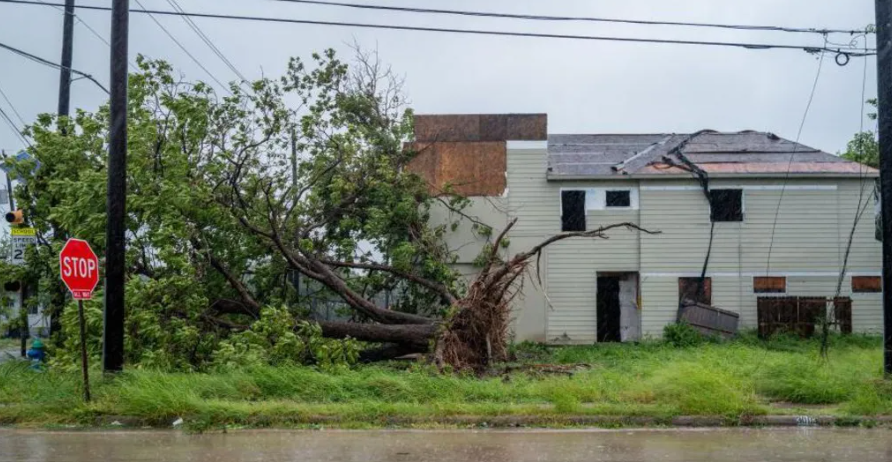Hurricane Beryl has tragically claimed the lives of at least seven individuals in southeast Texas and Louisiana, leaving nearly three million people without electricity.
Initially striking as a category one hurricane, Beryl weakened to a tropical depression after hitting the southern United States on Monday morning.
Authorities cautioned the public about destructive winds, up to 15 inches (38 cm) of rain, and “life-threatening” storm surges.
The severe weather led to the cancellation of over 1,100 flights at Houston’s main airport, as reported by flightaware.com.
By Monday night, approximately 2.6 million Texans were without power, according to poweroutage.us, with additional outages occurring in Louisiana.
The Caribbean also experienced severe impacts from the storm, resulting in at least ten deaths.
In Texas, Harris and Montgomery counties reported seven fatalities, while Louisiana confirmed one death.
A 53-year-old man lost his life when fallen power lines caused a tree to collapse onto his home in Harris County.
In the same county, 73-year-old Maria Loredo was killed when a tree crashed through her roof.
Loredo’s family, who were present at the time, escaped unharmed.
Tragedy struck further in Harris County when Russell Richardson, a 54-year-old Houston Police Department employee, drowned while attempting to drive through high water on his way to work.
Another individual perished in a house fire likely caused by lightning, according to Houston’s mayor.
Montgomery County saw three deaths: one man was killed by a falling tree while driving a tractor, and two homeless individuals died when a tree fell on their tent.
Houston, a low-lying coastal city, is particularly vulnerable to flooding. During the storm, wind speeds in the area reached 75 mph (120 km/h), with gusts up to 87 mph.
Although Beryl continued to weaken as it moved north-northeast, flash flooding and heavy rain remained significant threats.

In Louisiana, where over 30,000 residents were without power on Monday night, a woman was killed when a tree fell on her home in Benton.
The National Weather Service (NWS) warned of potential tornadoes in Texas, Louisiana, and Arkansas on Monday night, with the risk extending to Missouri, Tennessee, Kentucky, Illinois, Indiana, and Ohio on Tuesday.
The ports of Corpus Christi, Houston, Galveston, Freeport, and Texas City were closed in response to the storm.
Over 2,500 emergency responders, including members of the Texas National Guard, were prepared to handle the aftermath.
Beryl was anticipated to move eastward across America’s central states, impacting Mississippi later in the week, while central and west Texas, experiencing drought conditions, were expected to be spared.
In the Caribbean, Beryl caused extensive damage, particularly in St Vincent and the Grenadines, Mayreau, Union, and Grenada.
The storm also heavily impacted Jamaica and brought significant rainfall to Cancún and Tulum in southern Mexico.
While pinpointing specific storms to climate change is challenging, high sea surface temperatures are considered a key factor in Hurricane Beryl’s intensity.
This storm marked the beginning of the 2024 Atlantic hurricane season, with the US National Oceanic and Atmospheric Administration predicting up to seven major hurricanes this year, compared to the usual three per season.
